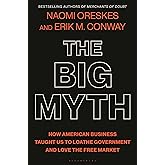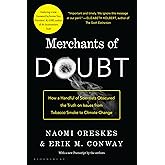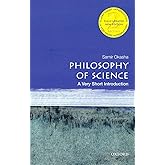
Amazon Prime Free Trial
FREE Delivery is available to Prime members. To join, select "Try Amazon Prime and start saving today with FREE Delivery" below the Add to Cart button and confirm your Prime free trial.
Amazon Prime members enjoy:- Cardmembers earn 5% Back at Amazon.com with a Prime Credit Card.
- Unlimited FREE Prime delivery
- Streaming of thousands of movies and TV shows with limited ads on Prime Video.
- A Kindle book to borrow for free each month - with no due dates
- Listen to over 2 million songs and hundreds of playlists
Important: Your credit card will NOT be charged when you start your free trial or if you cancel during the trial period. If you're happy with Amazon Prime, do nothing. At the end of the free trial, your membership will automatically upgrade to a monthly membership.
Buy new:
-29% $17.78$17.78
Ships from: Amazon Sold by: FindAnyBook
Save with Used - Good
$12.13$12.13
Ships from: Amazon Sold by: turningthebarrel

Download the free Kindle app and start reading Kindle books instantly on your smartphone, tablet, or computer - no Kindle device required.
Read instantly on your browser with Kindle for Web.
Using your mobile phone camera - scan the code below and download the Kindle app.

Why Trust Science? (The University Center for Human Values Series) Hardcover – October 22, 2019
Purchase options and add-ons
Why the social character of scientific knowledge makes it trustworthy
Do doctors really know what they are talking about when they tell us vaccines are safe? Should we take climate experts at their word when they warn us about the perils of global warming? Why should we trust science when our own politicians don't? In this landmark book, Naomi Oreskes offers a bold and compelling defense of science, revealing why the social character of scientific knowledge is its greatest strength—and the greatest reason we can trust it.
Tracing the history and philosophy of science from the late nineteenth century to today, Oreskes explains that, contrary to popular belief, there is no single scientific method. Rather, the trustworthiness of scientific claims derives from the social process by which they are rigorously vetted. This process is not perfect—nothing ever is when humans are involved—but she draws vital lessons from cases where scientists got it wrong. Oreskes shows how consensus is a crucial indicator of when a scientific matter has been settled, and when the knowledge produced is likely to be trustworthy.
Based on the Tanner Lectures on Human Values at Princeton University, this timely and provocative book features critical responses by climate experts Ottmar Edenhofer and Martin Kowarsch, political scientist Jon Krosnick, philosopher of science Marc Lange, and science historian Susan Lindee, as well as a foreword by political theorist Stephen Macedo.
- Print length376 pages
- LanguageEnglish
- PublisherPrinceton University Press
- Publication dateOctober 22, 2019
- Dimensions5.75 x 1.25 x 9 inches
- ISBN-10069117900X
- ISBN-13978-0691179001
Book recommendations, author interviews, editors' picks, and more. Read it now.
Frequently bought together

Customers who viewed this item also viewed
From the Publisher

Editorial Reviews
Review
"One of FiveBooks' Best Climate Books of 2019"
"Oreskes joins a distinguished line of thinkers who explain why we should trust the findings of the scientific community . . . [and] clearly reminds readers that science has consistently brought home the bacon." ― Kirkus Reviews
"Why Trust Science? is an optimistic analysis of the opportunities that exist for enhancing public trust in science. This book should be mandatory reading for anyone who is part of the scientific endeavor."---Elisabeth Gilmore, Science
"[A] fascinating new book . . . in a field with few reasons to be cheerful, it is both enlightening and encouraging. Once we begin to understand the size of the chasm that separates science’s outsiders and insiders, as Oreskes clearly does, we can at least start to design a bridge."---Michael Brooks, New Scientist
"Two features of science, [Oreskes] claims, account for its trustworthiness: its ‘sustained engagement with the world’ together with ‘its social character.’ Her emphasis on the second feature may surprise readers used to thinking of science as a tidy epistemic enterprise neatly insulated from social influence, but this view emerges clearly from her sober review of studies of science by historians, philosophers, sociologists, and anthropologists during the past half century."---Philip Kitcher, Boston Review
"A compelling argument in favour of experts."---Hettie O’Brien, New Statesman
"For both its evidence-based rigor and striking honesty, Why Trust Science? by Naomi Oreskes should be required reading for everyone in scholarly communications. Addressing the broadest view of science possible — from the experimental to the historical — this book offers crisp, accessible writing and draws important connections to our world of research dissemination and publishing."---Lettie Conrad, The Scholarly Kitchen
"Naomi Oreskes challenges easy answers." ― New Scientist
"A marvellous, up to date, thorough historical survey of science and its processes."---John R. Helliwell, Journal of Applied Crystallography
"The decline of trust in science is one aspect of a much wider social issue, and the author gives a detailed survey of various perspectives from history and philosophy of science including many of the best-known names in the field."---David Lorimer, Paradigm Explorer
"Oreskes' definition of science provides us with the best knowledge we can philosophically hope to get."---Ed Gibney, The Philosopher
"A fascinating and accessible read that considers numerous domains and issues to bring the reader to Oreskes’ ultimate point, that trustworthy science depends on consensus, diversity, and methodological openness and flexibility."---Jeff Share, Journal of Sustainability Education
"Why Trust Science? is an incredibly important work, bringing the history of science into something of a thinker’s field guide to the pursuit of knowledge. It is sharply written and, beyond being merely informative, it is sage. Wherever the reader stands on the for or against science divide, Oreskes’ determined and open-minded curiosity is infectious, as is her earned belief in science. Hopefully, it will encourage more scientists and science-lovers to spread the good word."---Katherine Oktober Matthews, Riding the Dragon
"Oreskes is eloquent, insightful and bold. At a time where we are still confronted by climate change deniers and the anti-vaccine movement . . . it is easy to see why a book like this is so important. . . . This thought-provoking, timely and comprehensive book is a must-read."---Joanna Florence Sparks, Chemistry World
"This book is well worth the effort for anyone concerned about climate change, protection of biodiversity, and other issues that involve science advising policy. Insights from Naomi Oreskes can bolster our arguments countering the anti-science, anti-expertise, anti-intellectual forces at work in the world today."---John Miles, National Parks Traveler
Review
"This comprehensive and thoughtful book explores the thorny questions we often take for granted regarding why, when, and how we can—or can't—trust science. In a post-truth world, this is the book we need."—Katharine Hayhoe, Texas Tech University, coauthor of A Climate for Change
"Naomi Oreskes's Why Trust Science? should be read by progressives, conservatives, and everyone in between. It's an important, timely, and utterly compelling book."—Elizabeth Kolbert, author of The Sixth Extinction: An Unnatural History
"In an age of fake news, alternative facts, and the notion that opinion and ideology trump empirical evidence and the scientific method, how should science respond? The title of this incredibly important book poses one of the most urgent questions of our time, because if we don't trust science then humanity is doomed."—Jim Al-Khalili, FRS, physicist, author, and host of BBC's The Life Scientific
"Anybody who wants to understand the conceptual and practical underpinnings of credibility in scientific findings should read this book."—John P. Holdren, Harvard University, former science and technology adviser to President Barack Obama
"This is a troubled time in the history of science and a perilous one for its reputation with the public, which is why now is exactly the right time for the fearless and brilliant Naomi Oreskes to explore this issue. The result is a don't-miss investigation into the very human nature of research—its successes, its failures, and its fundamental integrity in the search for truth."—Deborah Blum, Pulitzer Prize–winning author of The Poison Squad
"Why Trust Science? is a timely book by one of the world's most important and trenchant observers of science and society. With misinformation and disinformation rampant today, caring citizens do not know what or whom to trust and have become confused about evidence, opinion, and partisan assertion. We need Oreskes's clear look at how to recognize and use reliable knowledge. I cannot overstate the importance of this book now to scientists and citizens."—Rush D. Holt, CEO of the American Association for the Advancement of Science, former US House member
"Naomi Oreskes, who grabbed our attention with her keen insights into climate denial, now tackles a threat to the very basis of an informed democracy—attacks on science itself. Captivating, forceful, and grounded in critical analysis, Why Trust Science? is for anyone who cares about our world."—Jane Lubchenco, former head of the National Oceanic and Atmospheric Administration
"In this authoritative defense of science, noted scientist and science historian Naomi Oreskes presents her case, subjects it to scrutiny by experts, and responds to the points raised. Her approach itself is a metaphor for the self-correcting machinery of science and the iterative process that leads science toward a better understanding of the natural world."—Michael E. Mann, Penn State University, author of The Hockey Stick and the Climate Wars
"This book poses an important and timely question. While acknowledging the ways that science can go off track and become unreliable, Oreskes provides a compelling and well-supported defense of science, arguing that its trustworthiness derives from its collective character rather than a particular method or the inherent objectivity of scientists."—Angela N. H. Creager, author of Life Atomic: A History of Radioisotopes in Science and Medicine
"An insightful, lucid, and accessible discussion of a highly complex issue of great urgency and importance. Oreskes's call for a socially engaged science might lead to substantial changes in our conception of the role of science in society and the ways in which science is organized institutionally."—Karim Bschir, ETH Zürich
About the Author
Product details
- Publisher : Princeton University Press (October 22, 2019)
- Language : English
- Hardcover : 376 pages
- ISBN-10 : 069117900X
- ISBN-13 : 978-0691179001
- Item Weight : 1.25 pounds
- Dimensions : 5.75 x 1.25 x 9 inches
- Best Sellers Rank: #868,279 in Books (See Top 100 in Books)
- #2,899 in Popular Culture in Social Sciences
- #3,084 in History & Philosophy of Science (Books)
- #23,600 in Philosophy (Books)
- Customer Reviews:
About the author

Naomi Oreskes is a professor of history and science studies at the University of California, San Diego. Her essay "Beyond the Ivory Tower" was a milestone in the fight against global warming denial.
Customer reviews
Customer Reviews, including Product Star Ratings help customers to learn more about the product and decide whether it is the right product for them.
To calculate the overall star rating and percentage breakdown by star, we don’t use a simple average. Instead, our system considers things like how recent a review is and if the reviewer bought the item on Amazon. It also analyzed reviews to verify trustworthiness.
Learn more how customers reviews work on AmazonTop reviews from the United States
There was a problem filtering reviews right now. Please try again later.
- Reviewed in the United States on October 24, 2019This is a well written defense of science. It isn’t that hard to get through but expects the reader to pay attention. It also does a great job taking other viewpoints seriously and explaining why consensus is so important. Usually these types of books are written by philosophers (McIntyre’s “The Scientific Attitude” is the best of these books), but it’s nice to see a historian provide one.
The only potential concern someone might have is that this book assumes the reader is careful and patient to an extent that pop science books don’t. For the layperson, for example, the first chapter on the history of the philosophy of science might require some extra work.
- Reviewed in the United States on December 20, 2019This is an excellent book, especially if you are interested in the history and philosophy of science. More importantly, Professor Oreskes provides a nuanced discussion of the state of science in the United States, why there is distrust of science in our country, and why we should trust science.
- Reviewed in the United States on June 1, 2021Great book, I bought it for my college class & it was much cheaper than buying from the bookstore & came in great condition.
- Reviewed in the United States on December 27, 2019Naomi Oreskes does a wonderful job discussing the complexity of the question: why trust science. She takes a difficult task and rather than simplify it, she dives deep into an exploration of the historical and philosophical roots and traditions of Western science, taking the reader along an analysis of case studies where science got it wrong. This is a fun and accessible read that considers numerous domains and issues to bring the reader to Oreskes’ ultimate point, that trustworthy science depends on consensus, diversity, and methodological openness and flexibility. I highly recommend it.
- Reviewed in the United States on October 30, 2019I listened to this on Audible, great ideas brought out from different perspectives on some very important topics.
- Reviewed in the United States on October 24, 2019This book is not a defense of science at all because of its emphasis on consensus. Consensus has no place in science. If 100% of scientists agree with an incorrect hypothesis, it is still incorrect. Newton’s theory of gravity was wrong. Einstein’s theories don’t work in black holes or at quantum scales.
But to be fair, this book is not a complete waste of time. It will leave you wondering why someone who is supposed to be well-versed in science would write something that is so fundamentally wrong.
Science is definitely to be trusted. Consensus (and this book) is to be taken with a grain of salt.
- Reviewed in the United States on April 19, 2021I hoped this book could help improve my critical, scientific, analytical thinking. Instead, I got something which my review title says. My bad.
p.s. Below please find some favorite passages of mine fyi.
Science is the practice of formulating meaningful statements, and using observations to judge whether a meaning statement is correct. Pg24
vs.
The most well-known critic of logical empiricism (the core of scientific method is verification through experience, observation and experiment) is Karl Popper. He denied that induction was the method of science. He argued that what distinguishes science from other forms of human activity is not its activities, but its attitude. Great scientists are notable for the critical attitude they take toward their work, which is an attitude of skepticism and disbelief. He insisted that the goal of science is not to prove theories – since that cannot be done – but to disprove them. He introduced his now famous notion of falsifiability, concluding that what distinguishes a scientific claim from a non-scientific one is not that there is some observation by which it can be verified, but that there is some observation by which it can be refuted… the key activity of science is not the gathering of observations, but the formulation of conjectures and the pursuit of specific observations that may refute them. Pg26-7
Top reviews from other countries
-
 MarianaReviewed in Brazil on December 5, 2022
MarianaReviewed in Brazil on December 5, 20221.0 out of 5 stars O livro não veio lacrado e chegou sujo e amassado.
O livro não veio lacrado e chegou sujo e amassado.












